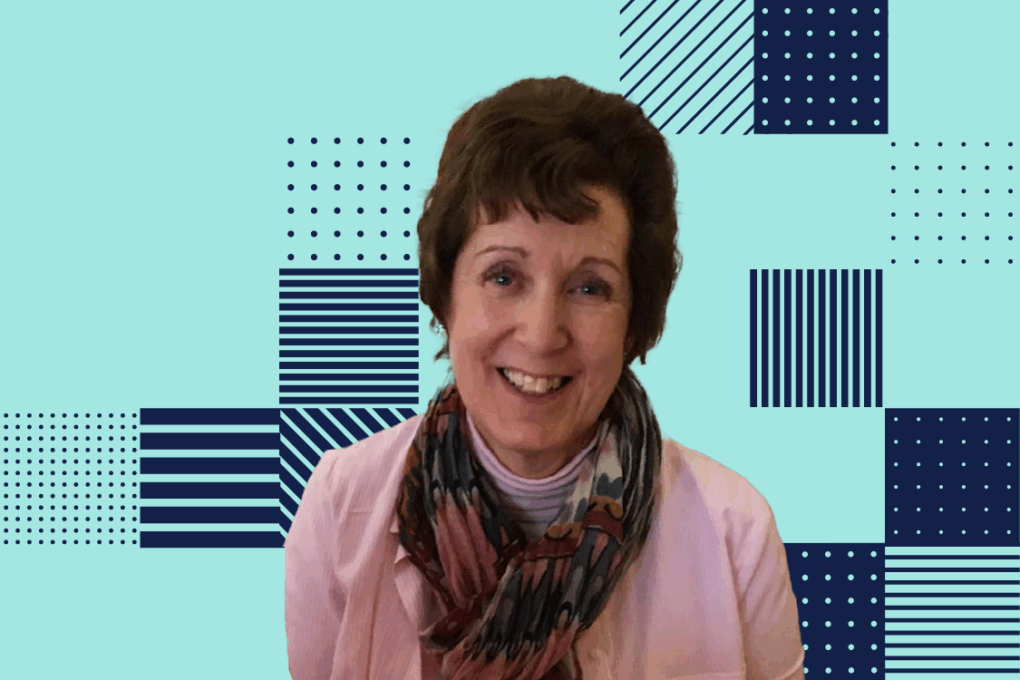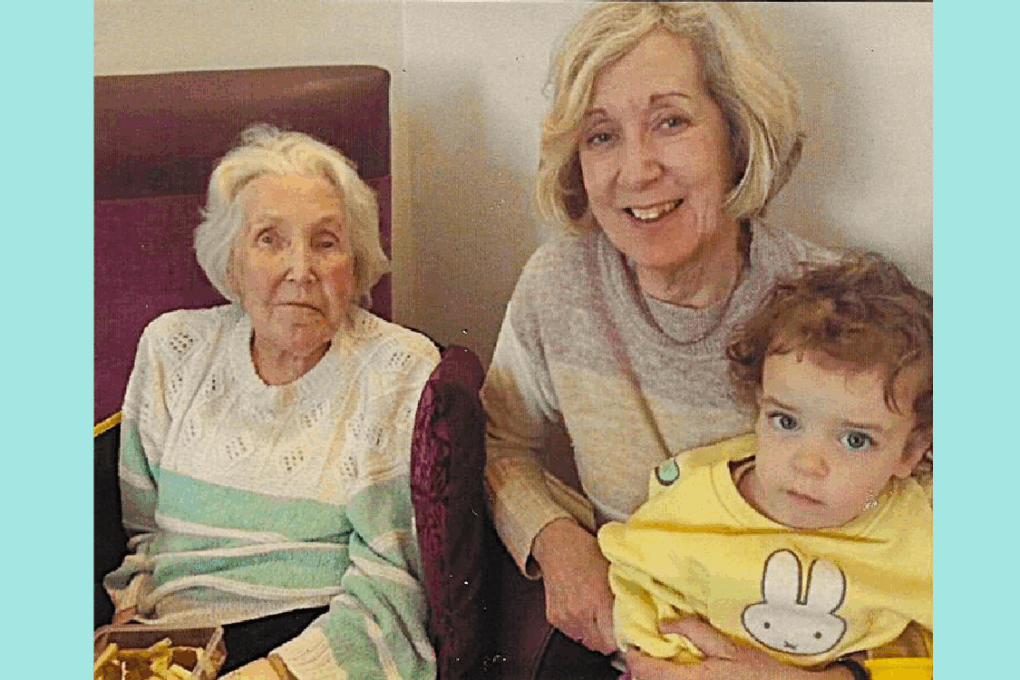‘Three generations of women in my family have taken part in health research – now I’m picking up the mantle’

When retired language teacher Siân Moore, 65, from Portsmouth, received a letter in the post from Our Future Health inviting her to join our programme, she didn’t hesitate to sign-up.
For Siân, it was an opportunity to continue her family tradition of supporting health research for the good of others.
“Both my mother and grandmother had long careers in healthcare and took part in different health research programmes during their lives,” says Siân.
“Though I was a teacher, our whole family seems to have a sense of service to our community and healthcare in our blood.
“It’s important to me to follow the example that I was set by joining Our Future Health. We must remember that the treatments we have today wouldn’t be here without past health research programmes.”
‘My grandmother had a strong sense of helping others’
Siân’s grandmother, Gwendoline, grew up in Wales before moving to London to train as a nurse.
She went on to be the youngest night sister of St George’s Hospital in East London, before later being called up to run a hospital for injured soldiers in an old manor house during WWII.
“She remained dedicated to the health service throughout her career and life,” says Siân.
“Sadly, in her late 70s, my grandmother developed a horrible form of double breast cancer. It was so virulent that the toxins came out through her skin, and she suffered bad burns.
“She underwent various cancer treatments including a course of radiotherapy, but once her skin had been damaged, she wasn’t able to have any more.”
It was while she was at hospital being treated for cancer that Gwendoline was approached to take part in a health research programme.
“Having been in the health service all her life, she simply said ‘how can I not?’,” says Siân. “I always thought that was very brave for a woman of her generation, in her 70s, as she had to be photographed naked as part of this research.
“But she did it, because she had a strong sense of doing things for the good of others. I adored my grandmother and always looked up to her in that way.”
Gwendoline survived with cancer for many years, before passing away peacefully in her sleep at the age of 88.
‘The NHS meant a huge amount to mum’
In 1989, Siân’s mother, Joan, also took part in a health research programme in North London called the Chingford 1000 Women Study.
This was set up to look at the prevalence of osteoarthritis and osteoporosis in women, and to assess known risk factors and their associations with these diseases.
“Mum was one of the original members. She joined the Chingford 1000 because of her own mother, and because she too worked in the NHS,” says Siân.
“She began her career as the secretary to a neurosurgeon in Whitechapel, and then as a medical receptionist at a doctor’s surgery. She stayed there for 30 years. The NHS meant a huge amount to mum. She used to say that if you cut her in half, it would say ‘NHS’ inside her.
“At the time of joining the study, mum didn’t know she had osteoporosis. But during the testing, researchers discovered that the bones in her arms were very frail.”
After a visit to her GP, Joan was prescribed alendronic acid and calcium supplements. She was also put on hormone replacement therapy (HRT).
“The combination of all that must have been incredibly effective, because she had some pretty significant falls and she didn’t break a single bone.”
Like Our Future Health, The Chingford 1000 Women Study is longitudinal. This means that data is collected from the same individuals repeatedly over an extended period, enabling changes and patterns to be observed over the long-term.
The study continues to help health researchers determine common risk factors for musculoskeletal disease within its volunteer group.
For future generations

When an invitation from Our Future Health dropped through her letterbox, Siân signed-up straightaway.
“My granddaughter, Beatrix had just been born premature at 27 weeks. Weighing just 1 pound 15 ounces, she was so little and frail. We were concerned about what might happen to her in the future.
“I just thought, ‘if signing up helps her and the other children on the neonatal unit in the future, then I want to do it’. I hope they will see much medical progress in their lifetimes.
“I believe we are here for a short time, and we are custodians of the world, not its owners. We must do what we can to hand things on to the generations after us in the best possible state.”
At the age of just 3, Beatrix has already taken up the baton and become the fourth generation of women in her family to be a part of health research.
“It’s a research programme at the University of Cardiff, which involved her having a course of antibiotics after birth to see if it helps premature babies with their long-term health.
“We won’t be told until she’s 18 whether she was given the antibiotics or the placebo, but whichever it was, I’m very proud of her, and she’s just thriving now.
“I had always felt in some ways that I was the ‘weak link’ in the chain, because I’d not participated in health research myself. Now that I’ve joined Our Future Health, I feel I’ve mended the chain.
“I hope more people join this brilliant programme and support the important research it’s helping to facilitate.”
About volunteer voices
Volunteer voices tell the stories of people who take part in our research programme. Often, they have experienced the devastating effects of a disease.
Joining Our Future Health does not help our volunteers in their battle with disease. They take part because they want to help improve healthcare for others in the future.

Let’s prevent disease together
By volunteering for Our Future Health, you can help health researchers discover new ways to prevent, detect and treat common conditions such as diabetes, cancer, heart disease, stroke and Alzheimer’s.